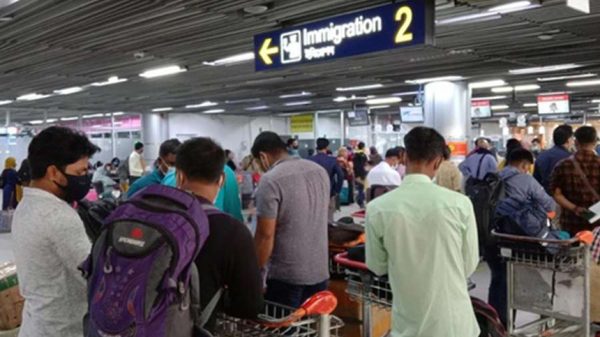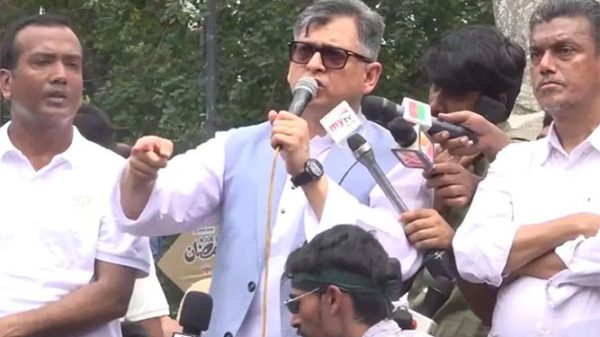Record manpower export, lower remittance receipt

- Update Time : Monday, 16 October, 2023, 02:51 pm
- 115 Time View

Online Desk: Bangladesh sent nearly a record 1.0 million workers abroad in the nine months of the current calendar year but inward remittance belies this rise as it has been on a decline recently.
Data available from the Bureau of Manpower Employment and Training (BMET) show that this is the highest number of outflows of workers in nine months, so far. Bangladesh started sending workers abroad in 1976, as a source of foreign-exchange earning.
The official figure showed that 989,685 workers went to different job-destination countries in January-September 2023. Earlier, the number of outbound workers was 874,739 in the first nine months of 2022, which was also a historical high in the overseas-employment sector.
Since 2022, the number of outbound workers has set record after record, but inward-remittance flows have receded, incidentally in the wake of forex crunch in the country as also abroad.
The central bank statistics showed that Bangladesh received US$1.34 billion in remittance in September-rated lowest in 41 months as the previous lowest volume recorded was $1.09 billion in April 2020.
September remittances dropped by about 16 per cent from August tally of $1.60 billion and it declined by 13 per cent year on year as the volume of inner remittance was $1.54 billion, the data showed.
Experts see various reasons responsible for the ebbing trend in remittance income. In particular, remittance flows through legal channels are showing less as workers choose hundi as a convenient and profitable way to send money.
Therefore, even though a good volume of remittances is coming in the country, a significant part of them does not come through legal channels, so it does not help to increase the foreign- currency reserves.
Moreover, money laundering is also a big reason that insiders think has increased now rather than decreased.
Dr Zahid Hussain, a former lead economist of the World Bank’s Dhaka office, said it was not that a large number of workers abroad were out of work, or that they had stopped sending money to their families. “So, why is money not crossing the borders?” he raised the question and said in that case the remittance is coming but in different ways.
He makes a point that if the remitters “get higher rates by sending their hard-earned income through informal channels than in formal channels, why would they send money through formal ways?”
The economist suggests leaving the dollar rate to the market to help increase the remittances through formal channels.
He has also stressed steps to stop hundi as it is a major source of money laundering.
Bangladesh’s forex market began to get volatile since the beginning of the war in Ukraine in February 2022. As of October 11, the country’s gross reserves stood at $26.85 billion, as per the Bangladesh Bank count.
But the amount is $ 21.07 billion as per the balance of payments and international investment position manual (BPM6) of the International Monetary Fund (IMF).
Sector-insiders, however, emphasised sending skilled workers, taking measures to help stop wage theft, and ensure due employments of the workers in job-destination countries.
Although Bangladesh has sent an increased number of workers in recent years, 80 per cent of them are going as unskilled and semi-skilled workers.
Bangladesh sent 734,181 workers in 2018, while 700,159 in 2019, 217,669 in 2020, 617,209 in 2021, and 1135873 in 2022, according to BMET data.
Majority of the workers went to the traditional job markets like Saudi Arabia, Oman, the United Arab Emirates and Malaysia in the nine months of this year.
Shakirul Islam, chairman of Ovibashi Karmi Unnayan Program – OKUP-says they always suggest giving more importance on quality migration than quantity.
“There is no alternative to quality migration to help increase remittance flow in the country and also ensure standard working environment for workers.”
Awareness also is crucial among the workers in sending remittance through official channels, he adds.
The BB statistics show Bangladeshi workers remitted US$21.61 billion home in the FY 2022-23, $21.03 billion in 2021-22, $24.77 billion in 2020-21, and $ 18.20 billion in the FY 2019-20.










